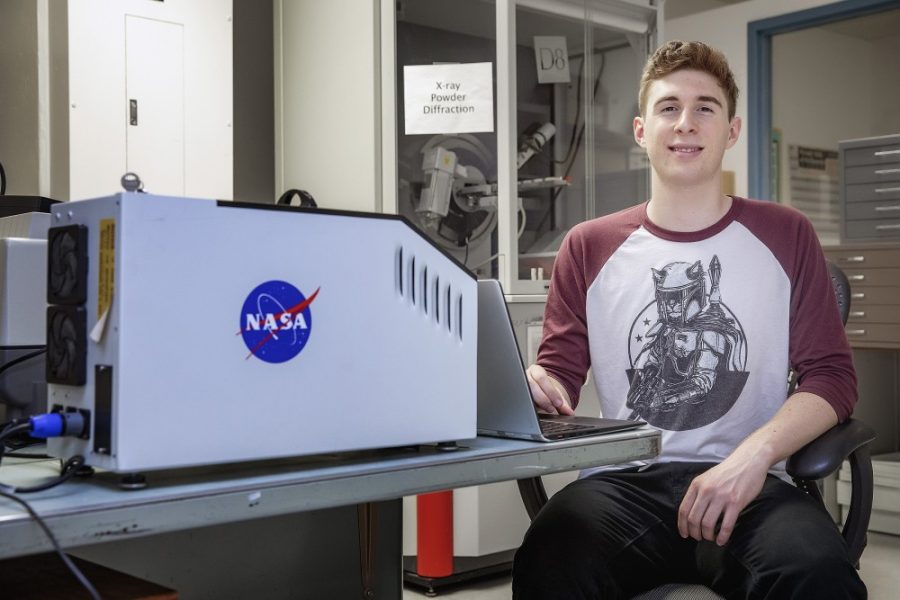The Mars Science Laboratory Team led by NASA researches the surface of the Mars to figure out if there is any potential habitat for life in the present or past. The University of Arizona has contributed to the project with eight researchers and grad students working on the team.
Gordon W. Downs is one of those team members. Downs is the only undergraduate student. Daily Wildcat reporter Nagisa Tsukada talked with Downs about his work with the MSL and his future career. This interview was edited for length and clarity.
Daily Wildcat: How did you get on the Mars Science Laboratory Team?
Gordon W. Downs: It started with helping a PhD student in geoscience. I was helping her with some coding and math for a project she was working on. And she was on the team. I developed software for her to help her research what she was doing and eventually I developed the software to the point that it was pretty useful, and others on the team wanted me to use it for the new data as it was coming out. And the Martian data is classified for a little while to give the people on the team the opportunity to publish about it before the public has the opportunity to publish about it. So, I was added to the team so I could analyze and classify data.
DW: Can you provide more detail about the software?
GD: It’s analyzing powder X-ray diffraction data, which is a type of data that the CheMin (Chemistry and Mineralogy) instrument takes. In particular, what my software aims to do is analyze the amorphous. There are pretty much two types of material in the Martian soil. How the instrument works is it takes the sample of Mars and does the X-ray diffraction on that. There are two main types: crystalline and amorphous, and it is well understood how to analyze the crystalline components. But, right now, for the amorphous components, they just pretty much publish how much of the soil is amorphous, but they don’t say what’s in the amorphous part. The new thing my software is doing is trying to characterize what makes up that amorphous material.
DW: Why did you decide to develop the software?
GD: I’ve always been interested in NASA, Space Science, and it was the opportunity to work with people who were working at NASA. So, it was just like I was personally interested in that. And it turns out that the things I’m learning are widely applicable to very much all of science because I’m developing a mathematic model.
DW: Why did you choose the UA?
GD: I’m from Tucson; I went to high school here. And I think the main reason I came was because of the couple of generous scholarships that were offered to me by like Brown Foundation. I was hoping take this opportunity and publicly thank them.
DW: What is your major?
GD: I’m in electrical and computer engineering and math.
DW: When and why did you choose your major?
GD: I chose in the end of the freshman year. I had a really hard time choosing my major because there were so many things I wanted to do. But eventually I decided I wanted to work in cutting edge tech and I figured it’s easy [through] math [to] get in that field. They are both broad enough that I can choose later what to specialize. I have always known I wanted to do math, but what I was trying to decide was what other majors would be.
DW: What do you hope for your career?
GD: I’m really interested in robotics and AI (Artificial Intelligence). I know it’s not really related to what I am doing right now. I hope to go to grad school for AI and then maybe do startups. So I’m doing the McGuire Program (at Eller College of Management) this upcoming year.
Follow the Daily Wildcat on Twitter









